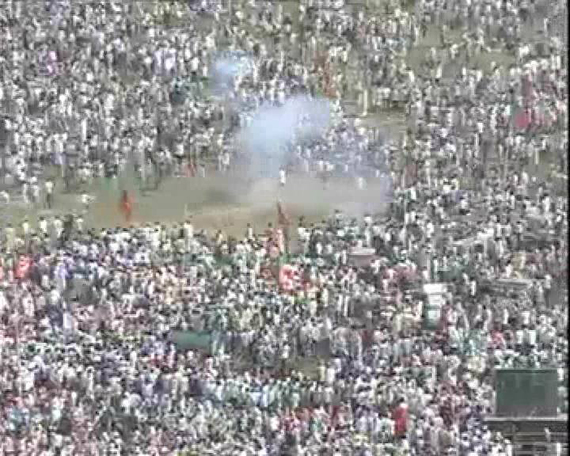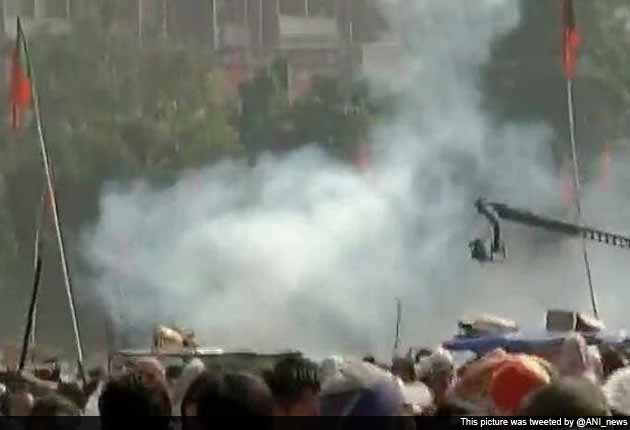
Patna, Oct 27: Five people were killed and 66 injured in six serial bomb blasts near the venue of BJP Prime Ministerial candidate Narendra Modi's rally in Patna on Sunday minutes before he reached there to address a huge gathering.
Hours before the multiple explosions, a crude bomb went off in a newly constructed toilet at the Patna railway station, two km from the BJP's 'Hunkar rally' venue.
Five people died from blast injuries and 66 others were being treated for these injuries, according to Vimal Karak, Deputy Superintendent of Patna Medical College Hospital.
Five low intensity blasts occurred on the outer periphery of the Gandhi Maidan, Union Home Secretary Anil Goswami said. One bomb went off before the Eliphistine cinema hall on the western side of the rally venue, police said. Tens of thousands of people had gathered at the rally venue.
Two crude bombs recovered
Immediately after the explosion at the railway station, bomb disposal swept the area and recovered two more crude bombs, Railway Superintendent of Police Upendra Kumar Sinha said.
One security personnel was injured while defusing a bomb recovered from the toilet, he said.
People were seen rushing the injured to the hospital as the explosions sparked panic.
At the rally, plumes of smoke billowed from a couple of sites even as BJP leaders, including Modi, addressed the crowd.
PM condemns blasts
Prime Minister Manmohan Singh condemned the blasts and appealed for calm. He spoke to Bihar Chief Minister Nitish Kumar and asked him to speedily probe the blasts and ensure that perpetrators are punished.
"The Prime Minister has condemned the blasts in Patna and called for urgent steps to identify and take action against those responsible," a PMO statement said.
Home Ministry seeks report from Bihar government
The Home Ministry sought a report from the Bihar government on the explosions and has sent teams of National Investigation Agency (NIA) and National Security Guard (NSG) to the state.
"I can't say whether it was a terror attack or political conspiracy. Only after the investigation, we will be able to tell anything," Union Minister of State for Home R P N Singh said. Modi later said he was saddened at the blasts.
"Blasts in Patna are deeply saddening and unfortunate. Condolences with families of deceased and prayers with injured. I appeal for peace and calm," the Gujarat Chief Minister Narendra Modi said in a tweet.







Comments
Add new comment